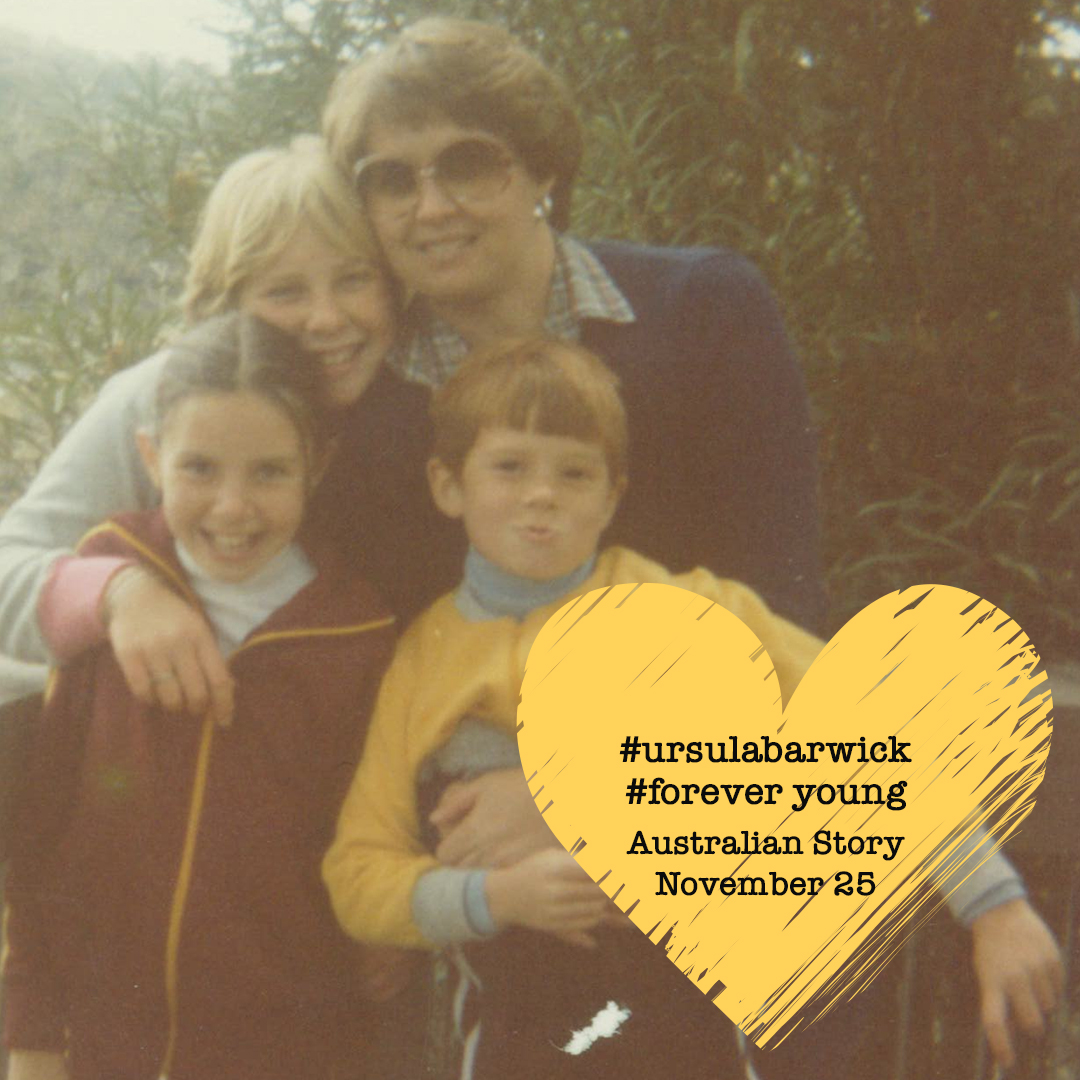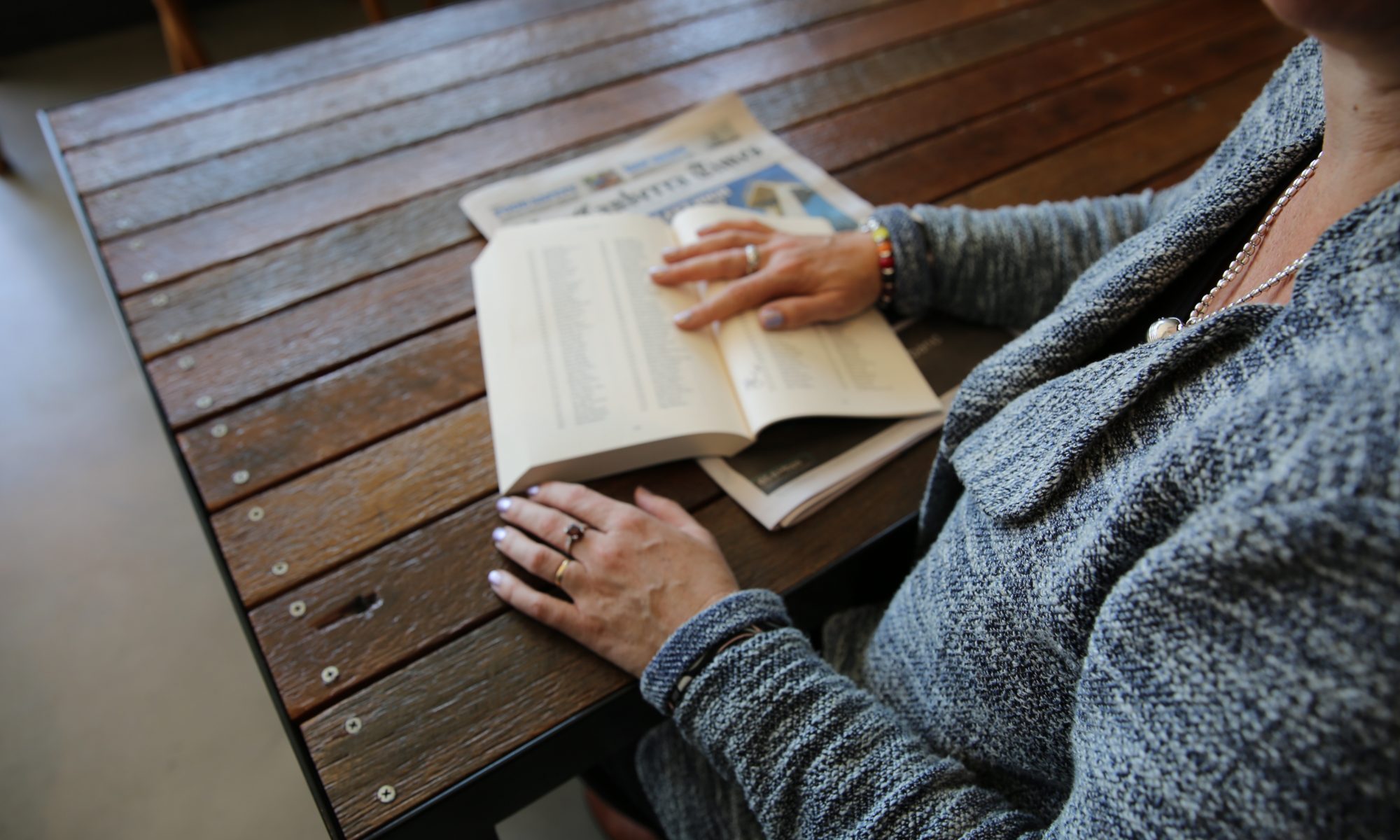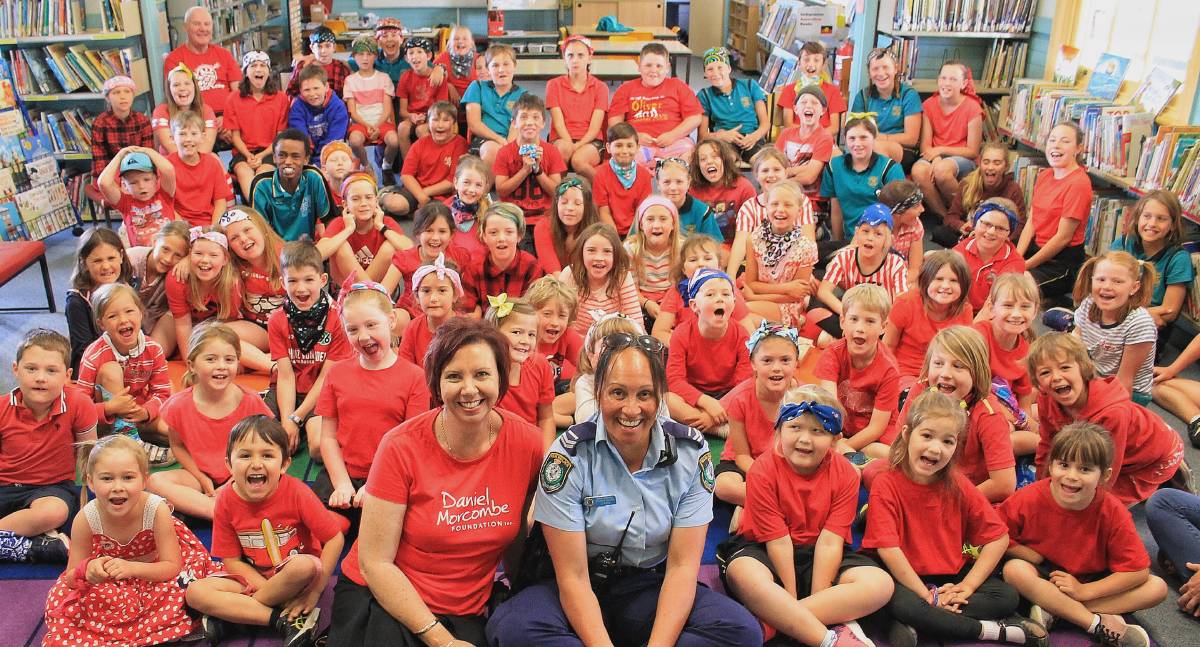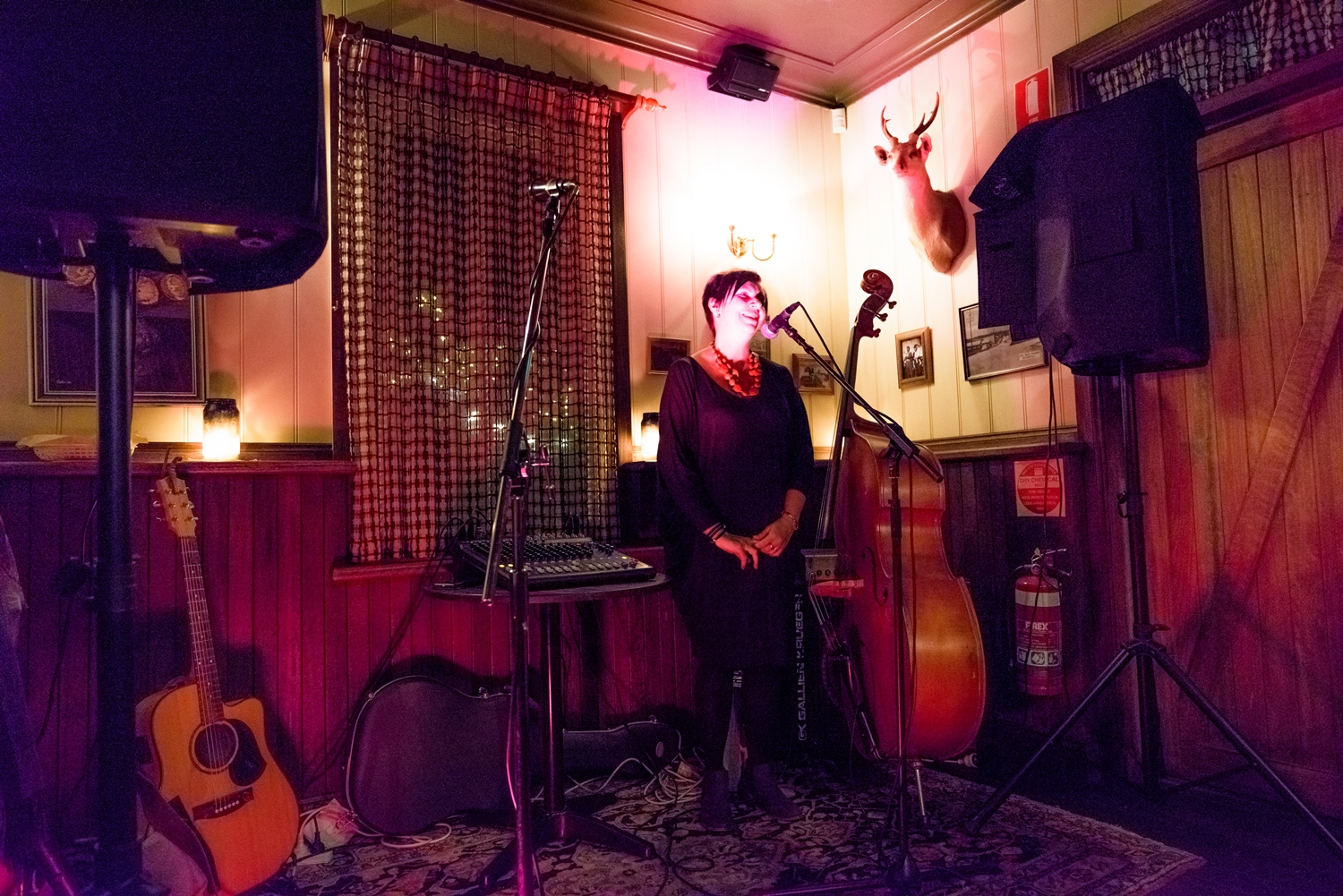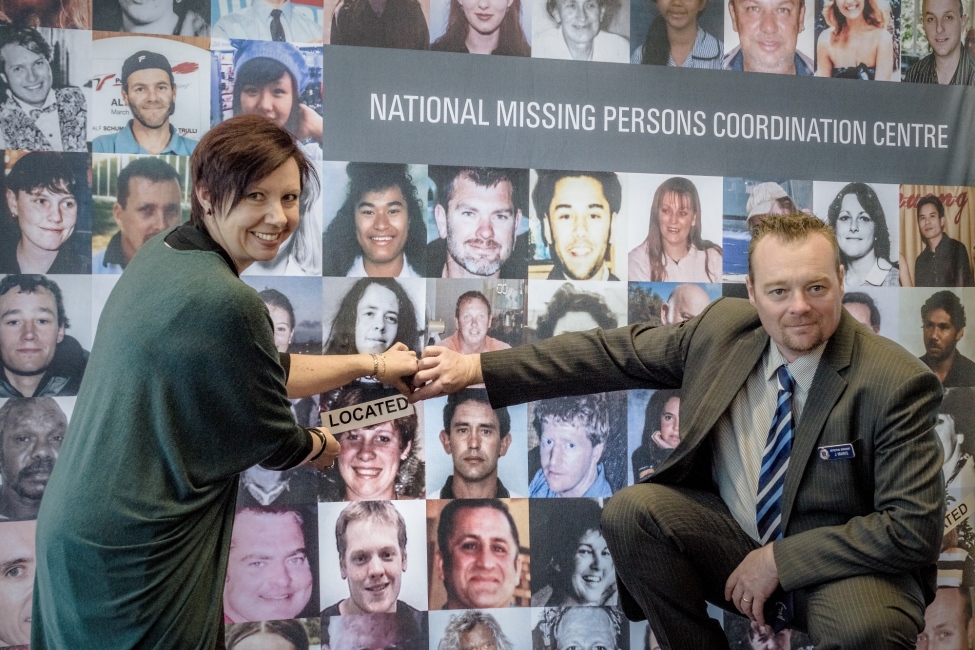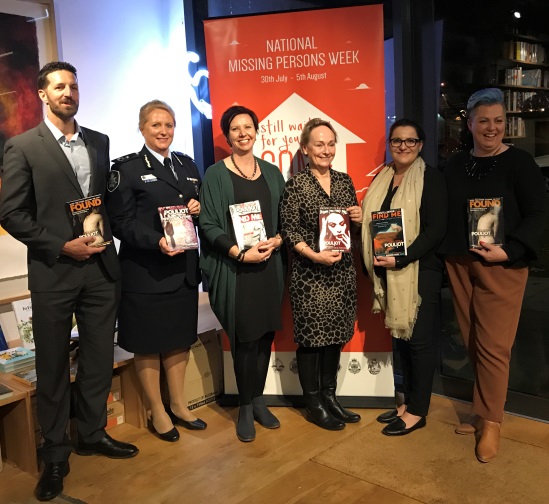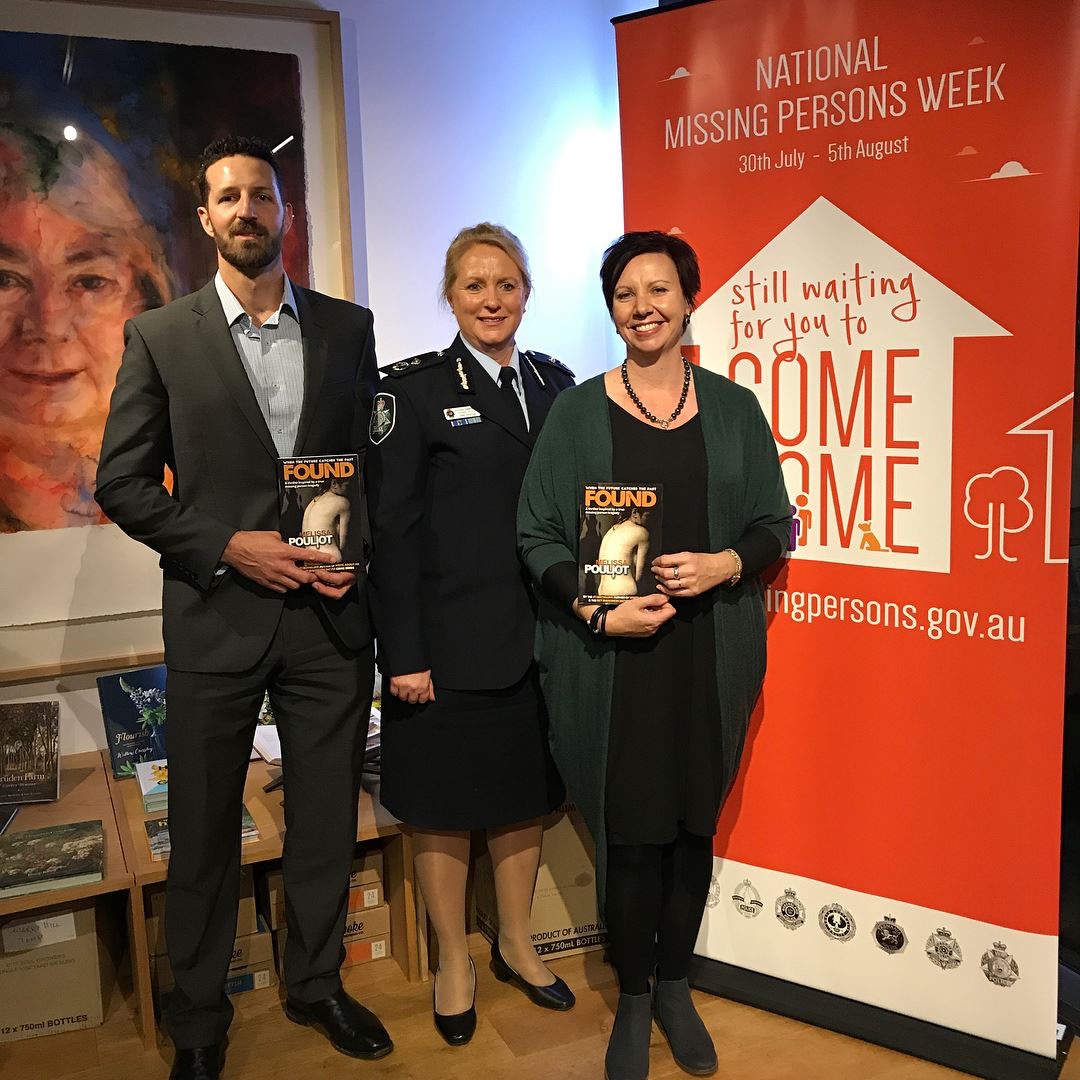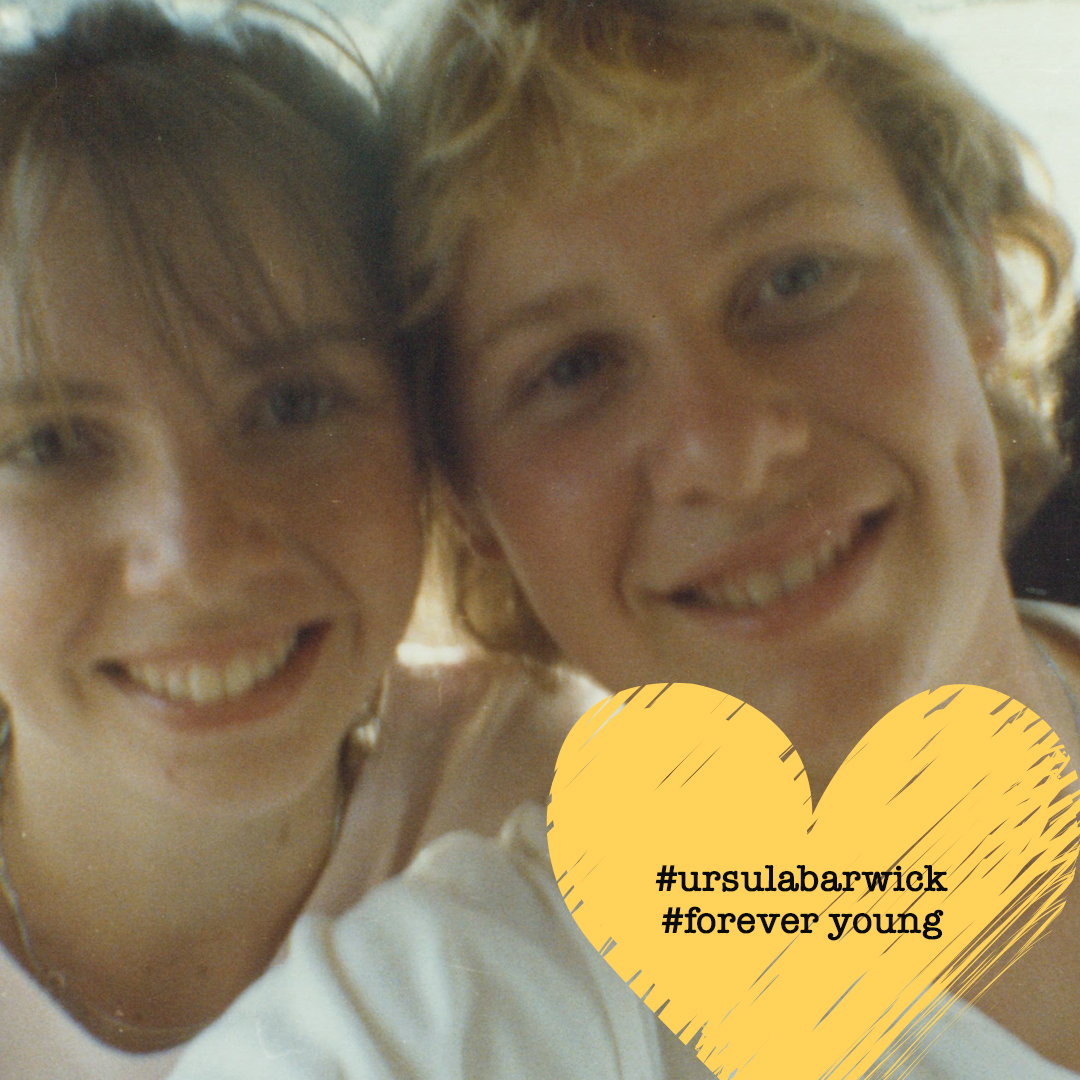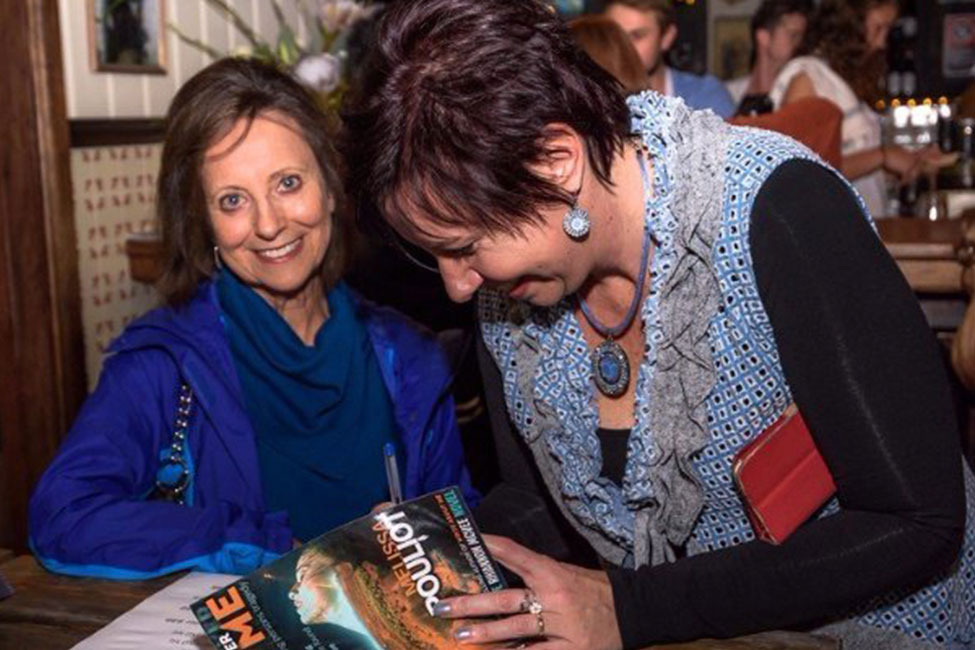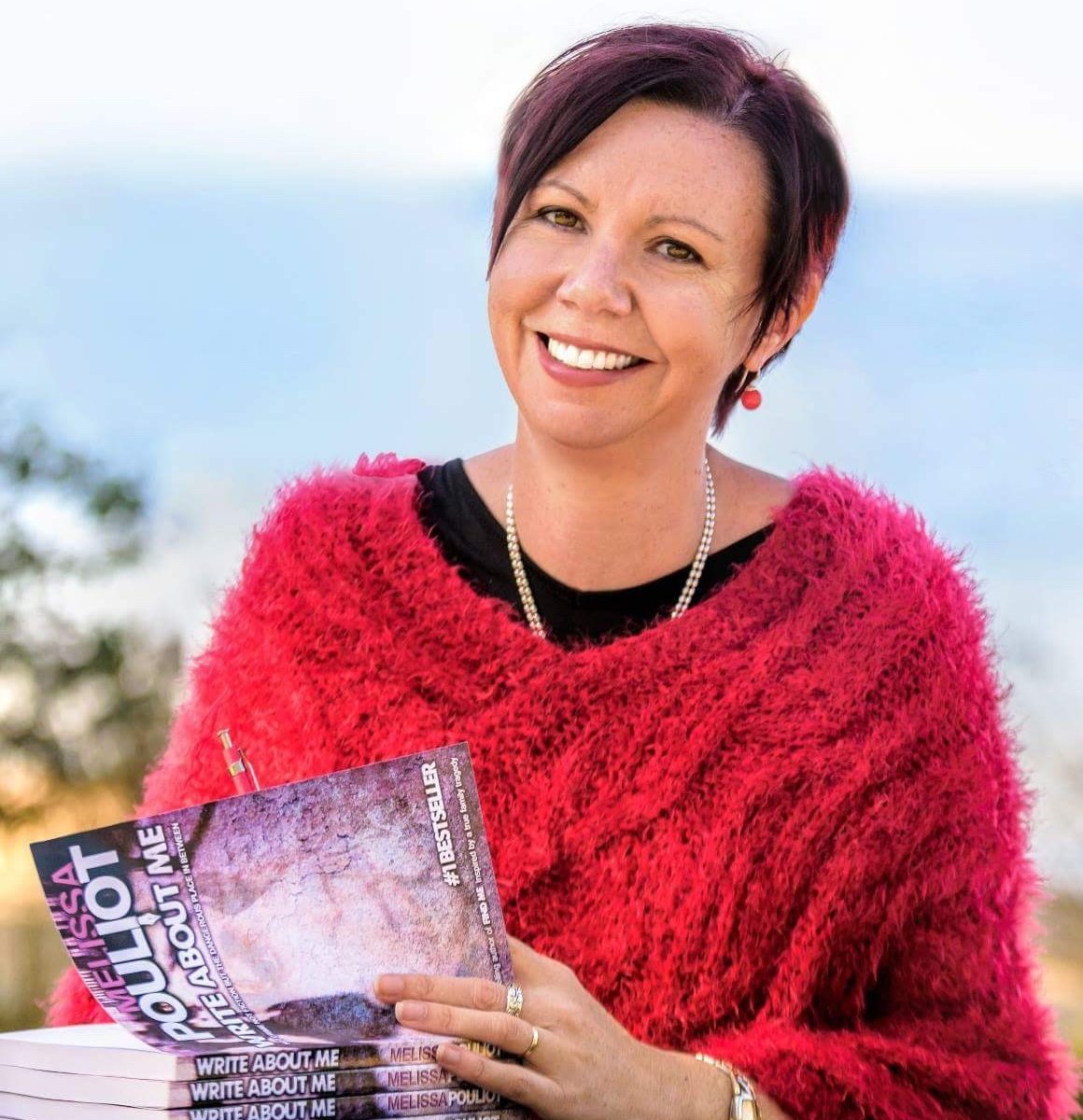Thankyou to everyone for the most incredible messages and support in the search for Ursula. I will respond personally to you all over the next few days, my heart is full 💛 I would like to make an extra special mention of my friend Chantal Scarlett who turned up on the doorstep to hold my hand and pour me a heartwarming drink (love your guts! ❌⭕️) She is one of many who have been by my side through this incredibly difficult quest for the truth … I have so many people to thank! But for now I would like to thank Ursula for teaching me what unconditional love and being brave truly mean 💛💛💛💛💛
Missing persons advocate: Melissa Pouliot
The day I first met the staff in the Australian Federal Police National Missing Persons Coordination Centre set me on a path I could never have predicted. The support they have provided during the search for Ursula and then with the discovery that she had been found means more to me than I can put into words (and that’s saying something!). Although they do not play an investigative role, they were able to provide information that helped me navigate through the complex missing persons space. It was a privilege to be invited to sit down with them and share my journey and my passion for continued advocacy for missing people – this is what they wrote.
…..
Melissa is a woman who wears many hats; wife, mum of three, cricket mum, dance mum, media company owner, outdoors lover, book lover and keen mountain bike rider. You would think she wouldn’t have much time to relax, but around her busy schedule, Melissa manages to write crime fiction novels and speak around the country advocating on behalf of families of missing persons.
Ursula Barwick
Melissa has strong personal ties to the issue of missing persons. In 1987, when she was just 15 years old, her cousin Ursula went missing. She was on her way to the ‘big city’ to follow work and after her family said goodbye to her at the train station, they never heard from Ursula again.
Melissa’s relationship with Ursula was that of very close cousins. Melissa recalls how growing up on a farm meant that as kids, they would spend their days picking blackberries, riding motorbikes, camping and picnicking. They would ‘pack a lunch at the start of the day and head for the hills and come back at night’. They would share many chats and memories together, but it is the specific conversations that Melissa finds hard to recall. “I wish we had some recordings of her talking and laughing, as I have her voice in my head but it’s so long since I’ve heard it out loud… I miss her.”
During the many years spent searching for answers, Melissa said it was a difficult process. As she was quite young at the time of Ursula’s disappearance, she felt a very strong sense of powerlessness in being able to find her.
It took Melissa’s family 30 years to discover Ursula’s whereabouts, and a fresh investigation which started in 2014 ended last year with confirmation from police that she had sadly died in a car accident shortly after going missing.
Day for Daniel
It is this experience that clearly defines Melissa and her passion for helping others. As an advocate for missing persons, Melissa speaks regularly and is a Day for Daniel Ambassador. By generously sharing her personal insights, she hopes it will help others going through a similar uncertain journey. “I turned to writing as a creative outlet to help me work through my emotions, which I had buried for a really long time until I published my first novel inspired by Ursula in 2013, and spoke publicly about her for the first time. I really need something to help me get through the renewed investigation for her, and that’s where writing became such an essential part of my life.”
Melissa created a successful book series based on fictional characters. With five novels published, and now working on her sixth, they help her step away from her real life trauma. Drawing on her own experiences, her fast-paced novels are helping people all over the world better understand the confusing and emotional rollercoaster of having a missing loved one.
Ambiguous loss
When asked what she would like to pass on to the many families of long-term missing persons dealing with ambiguous loss, Melissa says:
The main message I try to pass on is to never give up hope. I really held onto that strongly through the past five years and that’s what drove me forward to keep speaking up for Ursula.
“The hope was initially to honour her memory and that was my driver. Then it became clear there were things that weren’t looked into, and it became hope for fresh eyes on her case. The hope kept transferring, shattering and swinging around, but I had to try to reinvigorate it continually in the hope we would discover the truth.
“Hope isn’t just one word, it doesn’t mean one thing. Hope is the pillar of small wins along the way.”
Further to everything she has so far accomplished, Melissa is running her successful business, MP Media Solutions, which aims to support her clients work and celebrate their successes.
This year she has volunteered her time to help her home community of Tathra after the devastating fires that tore through the small coastal town in March, and has collected thousands of new books to replace lost home libraries through the “Book Love for Tathra” campaign.
With so many balls in the air and such a selfless and friendly personality, Melissa is a truly inspirational person who has turned what was such a devastating loss into a lifetime of advocacy and community service with a focus and passion like no other.
We can’t wait to see what is next for Melissa Pouliot.
Day For Daniel: Online world leads to problems for children, police say
- By Albert McKnight, Bega District News
- October 26, 2018
The ubiquitous nature of the internet has meant some corners of the relatively-new technology are unsafe for children, which is one of the messages being shared on Day For Daniel.
The event is Australia’s largest child safety awareness and education day, this year held on Friday, October 26.
Senior Constable Donna-Marie Clarke of the Batemans Bay Police said social media was a large problem, as use of it could result in withdrawal from the family unit and community, or bullying.
“Parents allow kids to talk to whoever they want to, it’s not being monitored at all really,” she said.
“The online world is where parents are finding a lot of their problems as their kids get older, I can confidently say from age 11 up.
“It peters off around Year 11, but in that period there have been suicides; it can be quite extreme.”
What she wanted to drive home to parents was to look at their children’s behaviour when assessing if they were experiencing problems online.
“Rather than talk, watch them and listen. If what you’re seeing is not normal to what they have been doing, look at what they’re doing online,” she said.
Senior Constable Clarke said issues that stemmed from the online world such as bullying affected youths in metro and regional areas equally, and rates were not decreasing.
“It has not been reported enough to police, for various reasons families don’t want to tell police their problems, they try to deal with the issues themselves,” she said.
“Parents need to ask for help. It’s a community approach we need, not an individual approach.”
Day For Daniel ambassador Melissa Pouliot said another factor to think about was how parents’ social media usage influenced their children.
Senior Constable Donna-Marie Clarke and Day For Daniel ambassador Melissa Pouliot talk about ways to stay safe with Wolumla School’s Clancey Whyman, Renato Barrios-Jacobs, Amelia Walsh, Zak Rayner and Kaleila Mazzei.
Senior Constable Donna-Marie Clarke and Day For Daniel ambassador Melissa Pouliot talk about ways to stay safe with Wolumla School’s Clancey Whyman, Renato Barrios-Jacobs, Amelia Walsh, Zak Rayner and Kaleila Mazzei.
On Friday, Senior Constable Clarke visited Wolumla Public School to talk to pupils at the school about ways to keep themselves safe.
They discussed when in trouble who were safe people to go to, such as neighbours, police and teachers, as well as safe places to go to, such as home, school, police stations and hospitals.
Senior Constable Clarke said if the children were lost and a person they did not know asked them to get in their car, the children should scream “no” as loud as they could so people in the neighborhood could hear them, then they should run away.
“People tend to take more notice if people yell loudly rather than if they yell ‘help’, unfortunately,” she said.
If that ever happened, she said children should try to remember as many details about the person and the car they were driving as possible, such as the car’s colour.
Also, children should memorise their full name and home address so they could tell the police when they called Triple Zero (000), as well as the address of the location where they were calling.
Writing, wellness and my return to my passions
During National Missing Persons Week 2018 I caught up with the lovely Samantha Moir from Warrior Women Radio, and we covered a lot of ground.
If you have a spare 12 minutes or so…
It is my first radio interview for a long time, as this year I have been having a break from writing and a break from talking publicly about my journey of the past five years with my missing person Ursula, who is now FOUND.
It was such a lovely chat and the perfect way to get back into my true passions – writing, missing people and keeping kids safe.
We pre-recorded, with a view to taking out the bits that didn’t work so well! But I love that Sam shared this in its entirety with a few stumbles by us both because isn’t that what life is? A few stumbles, but then we pick ourselves up and move along.
We honed in on the search for Ursula and my work with the Daniel Morcombe Foundation to keep kids safe. We also talked about writing and how writing fiction is a fantastic outlet for dealing with life when it gets too big.
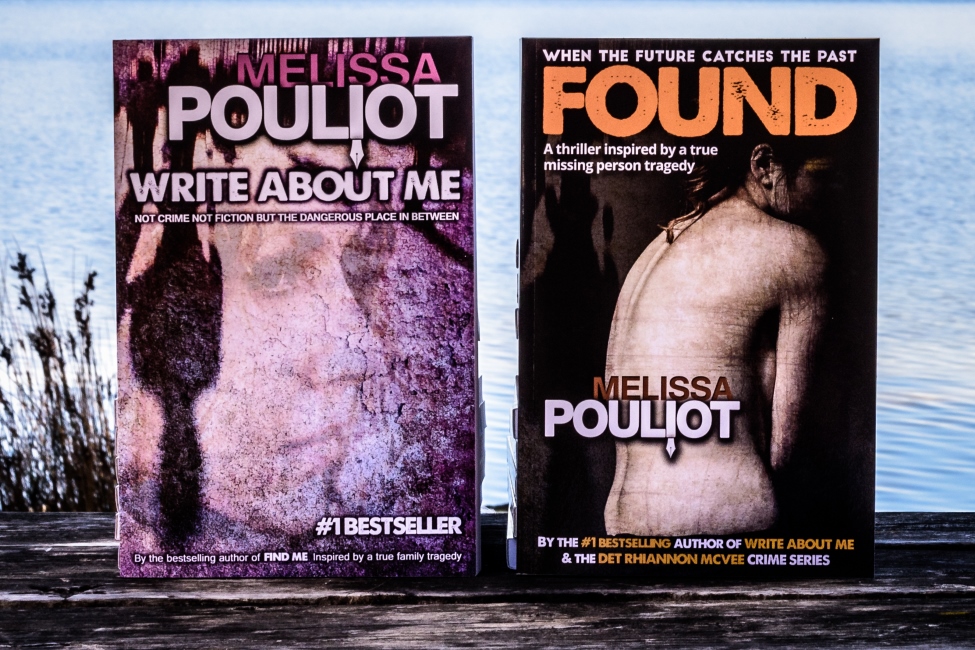
Unleash the Beast October 10
And here is my perfect segue into the Unleash the Beast event in Toowoomba on October 10, World Mental Health Day, where I am one of the guest speakers. This Writing and Wellness Symposium is absolutely packed from sunup to well past sundown. Ray Martin, Peter Fitzsimons and Mia Freedman will be there, along with so many other talented writers from all around Australia.
Here’s a little bit more about this great event which is raising money for Lifeline – you can book HERE.
Unleash the Beast is a writing and wellbeing symposium aiming to share, promote and propagate the conversation about mental health in a relaxed, entertaining and engaging manner. Why writers? Writers are able to articulate what it is about mental health that affects us as individuals, and at a family and a community level.
And on that note, it’s back to the writing for me. Book number 7 here we come!
LINKS
The letter that helped family find lost Ursula Barwick 30 years later
This article first appeared in the Canberra Times, then Sydney Morning Herald, September 30, 2017
By Michael Inman, Canberra Times
Ursula Barwick’s simple decision to change her name for her new city life allowed her to disappear in 1987. But that new moniker also provided a hint about her whereabouts.
“It was like she was leaving little clues for us,” her cousin, Melissa Pouliot, says.
Barwick had moved to Sydney to find work and visit friends. But the city lifestyle wasn’t the only change for the 17-year-old country girl from Quirindi, on the NSW north-west slopes, who adopted the name Jessica Pearce.
She was with her new friends – who knew her only as Jessica – when she died in a car accident on the Hume Highway, near Tarcutta, in October 1987.
As far as they knew, Barwick had boarded a Sydney-bound train on the NSW central coastsoon after her 17th birthday, and disappeared.
The pain of losing her cousin never left Pouliot, who poured her experience into crime novels about a missing teenager.
“Initially thinking it was too late to solve the mystery of her disappearance, my quest started as a way to honour her memory,” she says. “To show her, no matter where she was, that I had not forgotten about her, I had not stopped missing her, I had not stopped searching for her.”
Her first novel, Write About Me, started as a way to honour Barwick’s memory, but it helped spark a fresh investigation that found her after almost three decades.
“It just exploded from there,” Pouliot says. “An amazing groundswell of support followed, and it soon became clear that Ursula wanted to be found.”
The Merimbula-based author contacted the National Missing Persons Coordination Centre and asked it to update the website with correct information. “The colour of her hair, eyes and the date she went missing were wrong.”
Pouliot says she didn’t have high hopes but thought she would feel better if the details were correct. She then collected more information from family and friends and gave it to police in a spreadsheet.
As a result, the case was reopened through Taskforce Hemingway. “It was like a tap was turned on.”
However, it wasn’t a smooth process. The investigation started and stopped, and encountered a number of dead ends, including a tip that Barwick had worked at a Randwick pub.
The shifts in momentum brought on “a real yo-yo” of emotions. Pouliot’s books reflect the highs and lows.
“For a long time, we thought she’d been murdered because we knew she’d come home if she could. We were preparing for the worst when Taskforce Hemingway started. This is what all friends and family of missing [a] person go through.”
The power of words spurred the author to keep searching. “Words have real power. Words can wound, words can heal. And in my case, words can find people,” she says.
Those words were delivered in an old letter Barwick had sent to a school friend, in which she wrote that she liked the name Jessica. The clue helped lead the search party to the Jessica Pearce – whose appearance matched Barwicks – and, through painstaking work, investigators managed to match the two files.
Her friends who had been in the car with when she died had given the fake name to investigators after the fatal accident. Authorities at the time failed to track down her family and Barwick was buried in the Emu Plains Cemetery under the name of Jessica Pearce.
The family held a graveside memorial at the cemetery in July this year.
While Barwick has been found and the police case is now closed, Pouliot says the family’s quest for closure continues.
Pouliot now wrestles with a new emotional battle. She launched her fifth novel, Found, in Canberra in July.
“Instead of the raw volcano of emotion that I expected to go with the news that Ursula is dead, I carry around a dull ache across my shoulders, behind my eyes, in my right leg, and in my lower back. My grief moves and shifts around, reminding me every now and then that she is really gone.
“There are other signs of my grief. I forget things. I fade away in the middle of an important conversation.
“We are still trying to join dots that connect Ursula and the fictional character of Jessica Pearce, who she created for her new friends in Sydney.”
The details and circumstances of Barwick’s death are now with the NSW coroner. Pouliot says she hopes for answers to her many unanswered questions.
“Maybe then I will be ready to say goodbye.”
Australia’s national register of missing persons is at missingpersons.gov.au If you have information about a missing person, contact police or Crime Stoppers on 1800 333 000.
- IMAGE: After being missing for 30 years, Ursula Barwick has been found. Author and cousin Melissa Pouliot is with Detective Sgt Justin Marks from Bega LAC at the official launch of National Missing Persons Week 2017 in Bega
National Missing Persons Week: The search for Ursula Barwick
Article first published Canberra Times, July 31, 2017
“It’s never too late to find your missing person.”
That’s the message Melissa Pouliot has for suffering families after her missing cousin, Ursula Barwick, was recently found following a 30-year search.
Ursula, aged 17, had died in a car accident on the Hume Highway, near Tarcutta, in 1987, only weeks after she went missing.
Ursula had been living in Sydney under a new name, Jessica Pearce, and it was that name her new friends provided to investigators after the crash.
Author Melissa Pouliot, left, with her cousin Ursula Barwick, who went missing in 1987, aged 17. Photo: Supplied
The authorities failed to track down her family and Ursula was buried in Emu Plains cemetery under the name of Jessica, where she lay undiscovered until Ms Pouliot re-sparked the search.
The Merimbula-based author wrote the crime fiction novel, Write About Me , as a way to honour Ursula’s memory, but it created the momentum that saw the case reopened by police and Ursula found.
The theme of this year’s campaign is “Still waiting for you to come home”.
Like Ursula, 25,000 of the 38,000 people reported missing in Australia each year are under the age of 18.
Teens aged between 13 and 17 are six times more likely to go missing than the rest of the Australian population.
Young women are the most susceptible.
While the majority of missing people are found within a short period of time, there are more than 2000 listed as long-term missing, which means they have been missing for more than three months.
Australian Federal Police national coordinator missing persons and exploited children Marina Simoncini said for every missing person there were family, friends and colleagues left behind, still waiting for them to come home.
She said, in some circumstances, disappearing might be viewed as the only option to escape a bad situation, but in some extreme cases, a young person might have become a victim of crime.
Ms Simoncini said young people went missing for a range of reasons, including miscommunication, misadventure, or because of a misunderstanding.
While Ursula has been found, the police case finally closed, and a memorial held at the Emu Plains Cemetery earlier this month, Ms Pouliot said the family’s quest continued.
“The long journey of her death is not over yet,” she said.
“We are still trying to join dots that connect Ursula and the fictional character of Jessica Pearce, who she created for her new friends in Sydney.”
The details and circumstances of Ursula’s death are now with the NSW Coroner.
Ms Pouliot said she hoped for clear answers to the many unanswered questions.
But she said Ursula had left a clear legacy for the families and friends of missing persons.
“[Ursula’s] legacy, the thing that will inspire others for many years to come, is that it is never too late to find your missing person.”
To view Australia’s national register of missing persons, visit the National Missing Persons Coordination Centre website at www.missingpersons.gov.au , where information about support services across Australia can also be found.
Anyone with information relating to a missing person is urged to contact their local police or Crime Stoppers on 1800 333 000.
The Missing Series – AFP launch Found
It was an honour and a privilege to have the Australian Federal Police launch my fifth crime novel, FOUND , in the perfect book launching venue of Muse Canberra in July. The AFP National Missing Persons Coordination Centre has played a pivotal role in the search for Ursula since 2013, and endorse all my fiction novels for raising awareness for missing people.
All my special people were there to wrap me in love including my family and friends and other authors, as there was a lot of emotion surrounding the launch as it was the first time I spoke publicly about the story behind the story – that Ursula had been found .
I was thrilled to also meet other families of missing people and some of Canberra’s keen reading crowd. Kings Cross Detective Sergeant Kurt Hayward, who led the search for Ursula prompted by the release of my first novel Write About Me, was also there.
The 30-year search for Ursula involved a entire village of people who never gave up: her family, her friends, the AFP, the broader community and Kurt and the investigating team for Strike Force Hemingway that also included Detective Senior Constable Amy Scott.
Launch speech
Below is part of the launch speech by AFP Assistant Commissioner Debbie Platz, which made me feel humbled and extremely fortunate to be where I am today, as a strong advocate for missing people and an established fiction author. And the family member of someone I have missed for 30 years, who thankfully now is found.
“You will know there is a personal touch to all Melissa’s books, through her cousin Ursula who went missing in 1987. Ursula was the first person in Australia that the National Missing Persons Coordination Centre age progressed in 2010, she was age progressed to 39 and her picture placed on billboards in Sydney airport. She was featured again as part of National Missing Persons Week in 2015, and a result of that, we received many leads from various parts of Australia in our efforts to try and find Ursula. Fast forward to this year and tonight, 30 years after Ursula was first reported missing, and the launch of Melissa’s novel FOUND. This picks up the story of teenage runaway Annabelle Brown who we first met in Melissa’s first international #1 bestselling book Write About Me.
Melissa’s first story was published in a newspaper when she was 8 years of age, Santa’s Elf, and since then we’ve seen her go from strength to strength tonight, to launch the fifth in her Missing Series, FOUND.
What is profound about Melissa’s books is that because of her personal connection with the storylines, the things that have happened in her life, she can actually tackle complexities of missing people. She can show us what it’s like to feel hopeful, and also despair and what it’s like to feel hopelessness. Melissa is also an advocate for missing persons, an Ambassador for Daniel Morcombe Foundation, and by what I can see tonight here with her family and friends, she is really well respected and loved by everybody who comes across her. I know for a fact that the people at the National Missing Persons Coordination Centre are deeply indebted to Melissa for the work she has done, and love spending time with her.”
Saying goodbye to Ursula
Words have real power. Words can wound, words can heal. And in my case, words can find people.
In 2013 I put a whole bunch of words together in a crime fiction novel I named Write About Me. After I finished all my made up words I wrote some real words about my cousin, Ursula Dianne Barwick, who went missing in October 1987 when she was 17 and I was 15.
After reading all my words, one of my best friends wrote to me: “Just finished your book! Fantastic job you should be so proud. I feel like giving you a big hug after reading the author’s note. Love and hugs to you.”
And my best friend from high school wrote: “Give up your day job now. I have 20 pages left and I don’t want the book to end.”
Those words, among many others, spurred me on to keep writing, and to keep searching for the truth about Ursula. Four years and four more books later, around half a million words, and I am staggered by how much words have changed the course of my life.
Finding Ursula was a team effort, driven by two dedicated detectives from Kings Cross – Detective Sergeant Kurt Hayward and Detective Senior Constable Amy Scott.
I had a small but strong support network every step of the way, encouraging me to be brave in my pursuit of the truth. Initially thinking it was too late to solve the mystery of her disappearance, my quest started as a way to honour her memory. To show her, no matter where she was, that I had not forgotten about her, I had not stopped missing her, I had not stopped searching for her. An amazing groundswell of support followed, and it soon became clear that Ursula wanted to be found.
On July 19, 2017 I tried to say goodbye to Ursula, who, nearly thirty years after she went missing, is FOUND. Her lifetime was 17 years, two months and thirteen days.
I stood with my family, some of Ursula’s school friends, the people who worked so hard over the past several years to find her and the people who have supported me along the way. Ursula’s Mum, my Aunty Cheree, wasn’t with us, although I like to think she and Ursula were reunited when Cheree died in 2004.
Yet, the journey is not over
To be completely honest, I am at sea as to how to say my final goodbye, as the long journey of her death is not over yet. We are still trying to join the dots that connect Ursula and the fictional character of Jessica, who she created for her new friends in Sydney that were with her when she died on the Hume Highway at Tarcutta on October 27, 1987.
I am unable to gather the words to describe my grief at discovering that Ursula died in a car accident only a short time after she went missing. During that first horrible, painful, devastating year after she went missing, words refused to settle into neat sentences. Then they raced around in circles for the 29 years that followed, all those years when we held onto hope she would come home to us. But she couldn’t. Because she was long gone.
I haven’t fallen into a crumpled heap onto the floor to sob my broken heart out. My stomach doesn’t twist in pain. I still wake up each day with fresh hope for a new day, and my life is moving forward at its usual rapid pace. Instead of the raw volcano of emotion that I expected to go with the news that Ursula is dead, I carry around a dull ache across my shoulders, behind my eyes, in my right leg and in my lower back. My grief moves and shifts around, quietly, reminding me every now and then that she is really gone. There are other signs of my grief. I forget things. I fade away in the middle of an important conversation. I lose concentration while riding down a steep, rocky hill and nearly end up in a pile of trauma at the bottom.
What we remember about Ursula
Every person who knew Ursula, both those who grew up with her, those who were close to her, and those who only said a casual hello to her in the school yard or up the street, all remember the same things. Ursula was always laughing, always smiling, always having fun.
The circumstances surrounding her death are now in the hands of the NSW Coroner and I look forward to having clearer answers to the questions we cannot answer at this time. Maybe then I will be ready to say my goodbye.
Her legacy, the thing that will inspire others for many years to come, is that it is never too late to find your missing person.
Yes, words certainly do have power. They can wound, yet they can heal. And as I have shown, words can find people.
Ursh, I love you and always will. I will never stop missing you, and I will always remember your bright blue eyes, soft blonde hair and lovely loud laugh. Let the good times last forever. Dance all night and shake the paint off the walls. Forever yours, Lissy x”
- This was my speech at the official launch of FOUND, my fifth crime novel. The Australian Federal Police Assistant Commissioner Debbie Platz launched my novel at Canberra Muse on July 27, 2017 as part of National Missing Persons Week. My closest family, friends, parents of missing people and keen readers wrapped me in love as I spoke publicly for the first time about Ursula being found.
Crime fiction and missing people feature at About the Book festival
The role of faith, personal stories and imagination play as starting points in writing puzzles, mysteries and journeys. This was the topic that started a fascinating discussion involving myself and fellow self-published author Karen Nelson during the inaugural About the Book festival in Merimbula.
Experienced facilitator and regional news storyteller Ian Campbell and people in the audience asked lots of great questions. Although Karen and I write very different novels, we are similar in our passion for telling important stories through fiction.
I never miss an opportunity to speak publicly about my love for writing and how I shift between writing fact by day as a media company owner , and fiction by night, as a crime fiction author .
I also never missing an opportunity to talk about missing persons , how more than 38,000 people go missing in Australia every year, which is more than 100 a day. How my books are another way of trying to connect with the broader community to take notice and help foster more understanding and support for missing people, their families and their friends.
I’m always happy to share my tips on self-publishing and how I navigate through the quickly changing book publishing arena. I even managed to get on the microphone during a self-publishing session during the festival, and shared some of my experience and insights in how to get your book ready for publishing.
About the Book Merimbula
About the Book is a festival celebrating all aspects of the book. It embraces all books, old and new, in whatever form they take.
About the Book is about:
– those who author, design and publish them
– those who sell, deal, and distribute them
– those who read, collect and repurpose them
They embrace any style and form of the book: graphic, comic, picture, text, fold out, grimoires or whatever manifestation the book happens to take, in both traditional and new media, embracing and celebrating what has happened in the past, while anticipating the future.
I look forward to seeing this event grow and become a permanent fixture on the Australian book festival tour – watch this space!
- To find out more visit About the Book’s website HERE .
Missing persons: Crime writer walks line between fact and fiction
TO THE thump of leather on willow, crime writer Melissa Pouliot delves into the heartache of families with missing loved ones.
As her children play Saturday morning cricket, Melissa imagines life in Kings Cross in the 1980s and the unremitting grief felt by families of missing people.
Melissa doesn’t have to delve far to find empathy — her teenage cousin went missing in 1987 when Melissa was just 14 and her disappearance was never solved.
It’s this Saturday morning routine that has allowed her to become “a book writing machine” as her children, Jake, 17, Tom, 12, and Laura, 7, describe her.
She has published four novels about missing people, Write About Me (2013), Find Me (2014), When You Find Me (2015) and You’ll Never Find Me (2016).
The former journalist, originally from Quirindi in NSW, now lives near Merimbula on the NSW south coast.
She has never given up hope there will be answers to her cousin Ursula’s disappearance.
“Ursula went missing when I was about to turn 15,” Melissa says. “She caught the train from the central coast of NSW to Sydney and nobody heard from her again.”
Melissa is hopeful her cousin’s disappearance might be solved by the 30th anniversary of the date she went missing, but she is aware of the limitations of the original police report.
“There were only six pieces of information about her disappearance, such as her hair colour, eye colour, height and where she got on the train,” Melissa says. “And some of that information was wrong.”
Melissa’s first book, Write About Me, is fiction but was inspired by Ursula, and Melissa drew on her family’s experience. She admits it was somewhat cathartic.
“The main character, Rhiannon, she is what I wanted for Ursula,” Melissa says. “She is someone who is so determined when police have limited resources.”
At the last minute before publication, Melissa decided to include an end note about Ursula.
The publication of the book led to fresh leads and Melissa was determined to get the inaccurate records changed.
“Ursula’s case was never closed and in the past few years it was given to a new detective and it has been a whirlwind since,” she says.
As a journalist, Melissa says she had always wanted to write, but never thought fiction would be her style.
Melissa started her career at a newspaper in Charleville, Queensland, before a long stint in the Wimmera where she worked in journalism before launching her own public relations company.
She started to write about Ursula, her missing cousin, but there was too little information about the disappearance of the 17-year-old to hold up a book, so Write About Me became a blend of fiction inspired by real-life events.
As a journalist who sticks to the facts, Melissa says she found writing fiction liberating, although she brought some journalism skills to the research.
“I have police officers who worked in the 1980s who check my police sections and my brother lived in Potts Point since the late 1990s so he helps me find the Kings Cross history,” she says.
Melissa says her family still grieves for Ursula, as many families of missing people do.
“There is a term ‘ambiguous loss’ where you grieve for your missing person but there is no end point because you don’t know where they are and what’s happened. So the writing has helped me understand and make sense of the emotions that go with missing Ursula for so long.”
- The official website for missing persons in Australia is www.missingpersons.gov.au
- This article is published in The Weekly Times HERE

